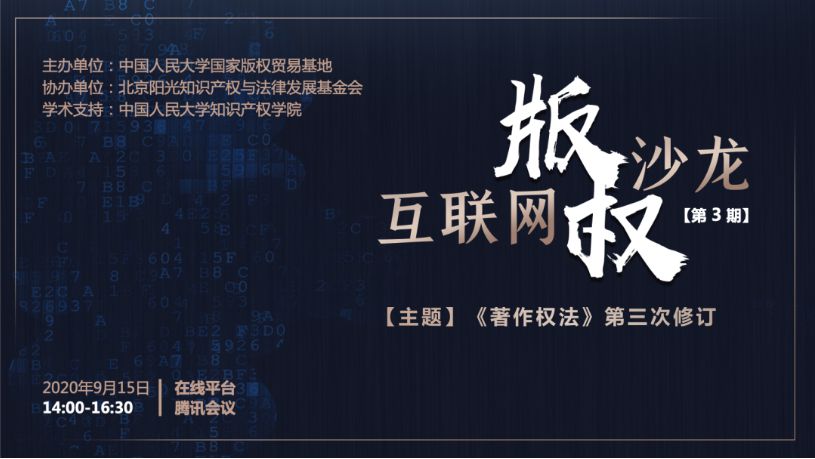China’s Copyright Law was promulgated in 1990, formally implemented in 1991, and revised in 2001 and 2010 respectively. The rapid development and wide application of Internet technology have challenged the current copyright law system. In 2011, the third revision of the Copyright Law was launched, and it has been nearly ten years since then.
On August 17, the National People's Congress of China announced the Copyright Law Amendment (Second Draft), and take public comments from the public. The process of the third revision of the Copyright Law has accelerated again.
Compared with the current Copyright Law, the second-review draft of the draft enriches the definition of “works” and the types of works, and adds relevant rules regarding the different protection of audiovisual works. The definitions of rental rights, broadcasting rights and rights to disseminate through information network in economic rights of copyright have been improved. It also add a general clause to moderately expand the scope of fair use. The specific rules on broadcasting organizer rights and performer rights have also been improved. It adds relevant rules specifically for technical measures adopted by right holders to protect works, as well as a punitive compensation system for copyright infringement.
In order to further discuss the relevant content of the third revision of the Copyright Law, on the afternoon of September 15 (Tuesday), the Third Internet Copyright Salon, hosted by the National Copyright Trade Base of Renmin University of China, co-organized by Beijing Sunshine Intellectual Property and Legal Development Foundation, and academically supported by Intellectual Property College of Renmin University of China, was successfully held via Tencent Meeting App. More than a hundred participants joined the salon online.


微信公众号:北京阳光知识产权基金会
Copyright: The Beijing Sunshine Intellectual Property and Legal Development Foundation